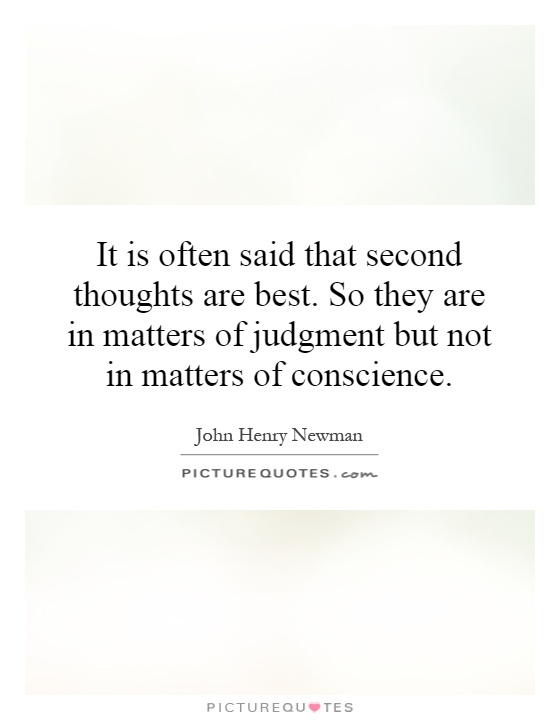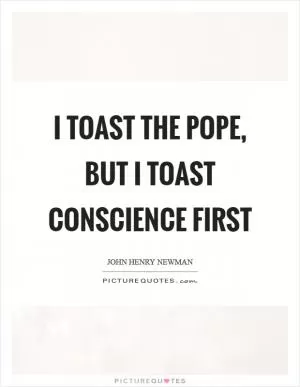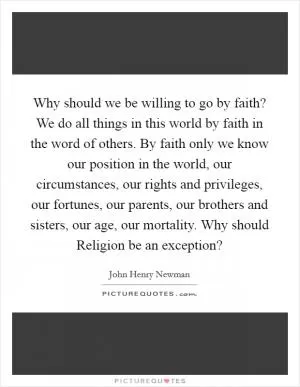It is often said that second thoughts are best. So they are in matters of judgment but not in matters of conscience

It is often said that second thoughts are best. So they are in matters of judgment but not in matters of conscience
John Henry Newman, a prominent figure in the 19th century religious landscape, was a firm believer in the importance of conscience. He believed that one's conscience, when properly formed and informed, should be the ultimate guide in matters of morality and ethics. In his famous work, "Apologia Pro Vita Sua," Newman explores the idea that second thoughts may be best in matters of judgment, but not in matters of conscience.Newman argues that when it comes to making decisions based on reason and logic, it is often wise to take a step back and reconsider one's initial thoughts. Second thoughts can provide a fresh perspective, allowing for a more thorough analysis of the situation at hand. In matters of judgment, it is important to be open to new information and to be willing to change one's mind if necessary.
However, Newman believed that when it comes to matters of conscience, second thoughts are not necessarily best. Conscience, according to Newman, is the voice of God within us, guiding us towards what is right and just. It is a moral compass that should not be ignored or second-guessed. Newman believed that one's conscience should be trusted above all else, even if it goes against popular opinion or societal norms.
Newman's emphasis on the importance of conscience can be seen in his own life and work. As a prominent Anglican clergyman who later converted to Catholicism, Newman faced intense scrutiny and criticism for his beliefs. Despite the backlash, Newman remained steadfast in his convictions, trusting in his conscience to guide him on the right path.












 Friendship Quotes
Friendship Quotes Love Quotes
Love Quotes Life Quotes
Life Quotes Funny Quotes
Funny Quotes Motivational Quotes
Motivational Quotes Inspirational Quotes
Inspirational Quotes